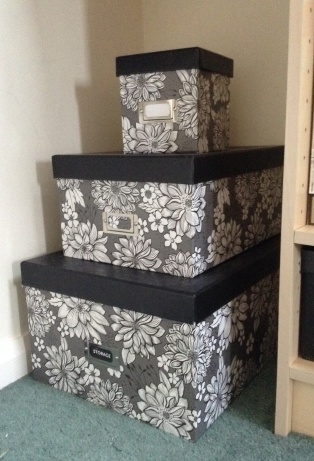One apprehension I had about spending a few months in rural France was “will I be lonely?” After all, the situation is not that different to the 3 months I spent in Malaysia in my early 20s, where I was profoundly and painfully lonely. In fact, the decision to go alone and deliberately isolate myself was in part to explore my fear of loneliness. However, when I returned, I decided I was simply a social creature, and there’s nothing wrong with that. I set about investing in close friendships further, instead of seeing my need for people as some kind of weakness.

My current stomping ground – miles of open farmland…
But here in rural France, I don’t see many people, there is a language barrier, I’m working from home and I only have contact with my English friends on the Internet. All this was the same when I stayed in Malaysia, so why did I feel lonely then and not now?
The difference is not how many people I see, or how often, but how fully I’m seen, understood and accepted by the people I do see. It’s about being able to be fully authentically myself with people.
When I stayed in Malaysia, I was only in contact with one friend in the world who truly understood me, so daily emails were like a lifeline. The main person I saw was my Grandmother, aged 80, who’s idea of who I was came entirely from her expectations of who I should be, and was vocal about it. Additionally, it was considered unsafe for me to go out on my own, as a single western female bodied person, so when out and about I had to keep my mouth shut. I was also aware that meeting a gorgeous lady and asking her on a date could end up landing me in jail. Essentially, during all my interactions with others I felt isolated.
I’ve felt this way within households I’ve lived in, and even whilst living with a partner whom I loved deeply, because there were other close relationships in my life at the time within which I felt painfully misunderstood.
There are aspects of me that may be totally outside of the field of vision of the person who I’m talking to (and show me anyone who can say different!). For me, these are the particular sticking points: fluid gender, sexuality, aspects of my mixed culture and spirituality, positivity. When these things went unseen or were seen negatively by others, it was hard for me to see them myself. Therefore, I couldn’t experience them, couldn’t present them or explain them to others, and experienced the pain of this as “loneliness”.
Over time I’ve found ways to make space for these aspects of me, to learn to be fully myself with the right people (I’m indebted to my friends & lovers for making space for this), and to find the language to explain who I truly am to new people on their own terms. I’ve realized the importance of being fully authentically myself in every aspect of my life – work, friendship, performance – an idea that is generally viewed as a recipe for disaster.
It’s said that social media and Internet communications cause loneliness, but I would argue that’s only true when they fool us into having interactions with people where neither party are being authentically themselves.
What I now believe is that the greatest gift you can give to another/to yourself is simply this – to be present and allow them to be whoever they are. This is easier said than done, as it requires a complete absence of judgment and abandoning of all expectations of who you think they are, or who you need them to be. This may also mean abandoning what you expect to be true about the world in general. It may widen your heart, your mind and your soul, since what happens next could be totally outside your current field of vision, understanding and experience. This is why making a space for someone is so powerful – it might give them what they need to finally be themselves, or to evolve into who they are going to be next…
-Kimwei



